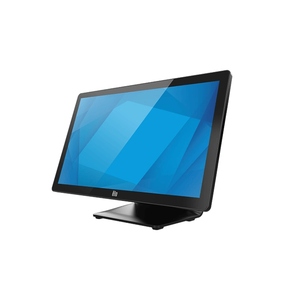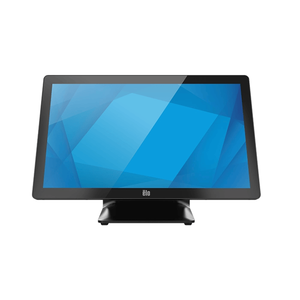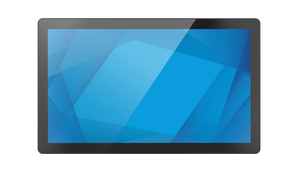Types of Student Laptops
The student laptop is designed for students. Finding the right laptop for students is quite a task, especially considering the differentiating features in various models. Although, in the end, one must weigh performance against affordability and come to a decision. However, to understand this complexity, it is essential to know different types of student laptops that can help them attain academic excellence while keeping them entertained.
When it comes to what laptop is best for students, it depends on what kind of student one is. Although all laptops can be classified into different models, each offering various specifications that aim to perform differently:
- Gaming laptops: Gaming laptops are designed to handle graphics-heavy gaming. This means sporting good specs. For gaming laptops, graphics cards, processors, and memory are the most crucial factors, which means they have the latest technology and offer the best performance. However, this also means they have expensive price tags and are heavy and bulky because of their high-performance parts, thus making them unsuitable for college students. Laptops for gamers cost between $1,000 and $3,000, and their weight is between 5 and 7 pounds.
- 2-in-1 laptops: Colleges and universities often want to save paper and like the idea of digital handwritten notes. This is one of the prime reasons why 2-in-1 student laptops have become so popular. The best feature of a 2-in-1 laptop is that it can function both as a laptop and a tablet. This proves to be useful in many ways, especially in note-taking because a stylus pen can be used to write notes in pdf files, which can also be done by converting lectures into digital notes through the voice app. Therefore, if the device is light and can easily be converted to a tablet, it can be carried around the campus and quietly take as many notes as wanted.
- Ultrabooks: Another type of best laptop for students is the Ultrabook. An Ultrabook is a high-end laptop that emphasizes portability. An Ultrabook is thin, light, and has long battery life, using low-power Intel Core processors. The first generation of Intel Core processors were i3, i5, and i7, but now there are better processors that can be looked at in the range of Core i5 or Core i7. They can perform most regular tasks, such as web browsing, writing papers, and watching videos. Because of their portability and good battery life, they are suitable for students who travel a lot.
- Chromebooks: A Chromebook is a type of student laptop that runs on ChromeOS instead of Windows or macOS. ChromeOS works fast, even on computers with less powerful hardware. These laptops are usually cheaper and good for students on a budget. Most students want to use a laptop for simple things like browsing the internet, watching videos, and doing homework. The benefit of getting a Chromebook for students is its low cost, and it works perfectly. However, the downside is that there are fewer apps and games to choose from. This can be a problem for students who want to use special programs for classes because not all programs work on Chromebooks.
Feature and function of student laptop
A laptop is a student can take anywhere serves many functions. It is an essential tool for research, studying, communication, and even creativity. Therefore, it must come with the right features for a great user experience. Here are some of the functions and features of a student laptop:
Features
- Compact Size and Lightweight (Under 5 lbs): A student laptop should be under 5 pounds and compact for portability. Students can conveniently carry them anywhere, even with a heavy backpack.
- Sleek and Modern Design: Laptops designed specifically for students have a modern aesthetic look that appeals to the younger generation. Students are more likely to be drawn to a laptop with a visual design that is in trend.
- Long Battery Life: A student laptop needs to last at least 8 hours on a single charge. At times, students may find themselves in a day-long academic schedule with no access to power outlets.
- Built-in Camera and Microphone: Virtual classes have become normal in the academic world. A good laptop for students will have a quality camera and mic for clear communication.
- Storage: Ideally, a student laptop should have at least 256 GB. An SSD storage type allows faster access to files and reduces the boot-up time.
- Storage Memory: Student laptops should have a minimum of 8 GB RAM. This is enough memory to run multiple programs and browser tabs simultaneously without slowing down the system.
- Silicone Touch Keyboard: A student-friendly laptop comes with a keyboard designed for speed and comfort. This reduces typos and errors when taking notes or working on assignments.
- Durability: A student laptop must be durable enough to withstand accidental drops and bumps. It should also be made of quality material that won't wear out with frequent use.
- Connectivity: A laptop for students must have various connectivity options like USB, HDMI, and wireless connectivity, to say the least. Connectivity enables students to expand their workspace with external monitors or projectors, and link to devices like a mouse or phone.
Functions
- With a laptop, students can perform basic computing tasks like taking notes, assignments, and essays.
- A student laptop enables access to online classes and academic resources like e-books, articles, and research databases.
- A laptop for students supports a wide range of educational apps and software for programming coding, designing, and other creative tasks.
- Students use laptops to communicate with classmates, instructors, and collaborators through email, messaging, and video conferencing.
- Most laptops have integrated printing capabilities, making it easy to submit physical copies of assignments when the need arises.
- A good laptop for students serves as a storage system for all academic-related documents, research, and projects.
- Students use laptops for entertainment, which helps them unwind after a long day filled with academic activities. They can stream TV shows, play games, listen to music, or read e-books.
Scenarios
Student laptops are versatile tools that can be used for various activities, both academic and personal. Here are some major scenarios where a student laptop comes in handy.
-
Researching and Writing Papers
Student laptops are useful for carrying out research on student assignments. Students can use the internet to get research materials from reputable websites and online databases. They can also make use of digital books and academic journals. Moreover, a laptop allows students to write papers, essays, and reports. They can have their documents organized and make use of editing tools to create professional assignments. The documents can be formatted and cited according to academic standards.
-
Collaborating with Classmates
Group projects are common in schools. Having a laptop allows students to work with classmates on the move. They can join online meetings or classes to discuss assignments and share ideas. Plus, students can make use of collaborative tools to work together even when they are not in the same location. Also, they can send emails or text messages to stay connected.
-
Studying and Reviewing Materials
With a student laptop, studying becomes more exciting and less stressful. Students can make use of educational websites and applications to learn difficult concepts. They can also watch videos to have a better understanding. Furthermore, a laptop enables them to take notes in classes and organize study materials for easy access. Plus, they can create digital flashcards or quizzes.
-
Taking Digital Notes
Laptops designed for students combine well with digital pen tablets to take digital notes. This allows students to easily organize their notes, search for specific information, and review materials efficiently. Also, digital notes can be edited and updated as needed. Unlike traditional paper notes, digital notes can be printed if needed for handouts or assignments.
-
Presenting Projects
A laptop projector is useful for projecting images, slides, or videos to a large screen during presentations. It enables students to showcase their work in a clear and engaging manner, making it easier for the audience to understand the content. Projectors also support multimedia presentations by integrating different types of content, such as videos, animations, and audio clips.
-
Communication and Organization
Student laptops allow students to communicate effectively and stay organized. They can send emails to their professors and receive updates from them. Plus, important announcements are sent via emails. Chat applications also enable students to network and connect with peers. Not only that, a laptop allows students to keep track of assignments, deadlines, and class schedules through calendar.
How to choose student laptops
When purchasing a laptop for students, it is vital to pick one that would appeal to a specific target audience because there are different kinds of students and each has its academic needs. For instance, a computer science student might have different needs from an art student. To this end, the following are some standard and essential features and criteria to look out for in a student laptop:
- Processor: The laptop student should ideally possess a faster and better-performing processor because, in most cases, students have a lot of assignments and, from time to time, simultaneously open different tabs and applications. A higher version, such as the Intel Core i5 or Intel Core i7, is more suitable for students than the Intel Core i3. This is because the Intel Core i3 model is an entry-level and might not handle a heavier and more complex assignment, particularly in computer science, engineering, and other related fields. An ideal laptop for students should be designed with feature models, such as AMD, in addition to Intel.
- Memory: Another important criterion is the laptop's memory or RAM. Most standard student laptops are designed with very low RAM, about 4 to 8 gigabytes, which might not be ideal for students. However, some are built with 16 GB, which is very rare and can be used for heavy, complex processing tasks.
- Storage: An excellent student laptop should have a fast and good storage system like an SSD (solid-state drive). The majority of student laptops typically come with HD (hard disk) storage, which is substantially slower than SSD storage. This can be a great advantage to students who also play games on their laptops because SSDs are better for organizing game files.
- Graphics Cards: Having a good laptop graphics card is another important consideration. Many student laptops have integrated graphics, but a dedicated graphics card is better for students studying graphics, animations, or game development.
- Connectivity: Targeting a specific student audience can help determine the kind of connectivity options the student laptop is designed with. For instance, students who live away from home, use the laptop frequently for travel and outside assignments, and work on the go will need a laptop with USB-C, Thunderbolt, and Wi-Fi 6E connectivity options.
Student laptop FAQ
Q1: Can a normal laptop be used by students?
A1: Yes, but it is better to use a student laptop made for school use because they have better features, are more durable, and will cost less to fix if they break.
Q2: What are the main things a student should think about when buying a laptop?
A2: Students should think about where the laptop is wi, where the wi laptop is, where the wi, and what the wi is. Also, buying a laptop that wi is more wi, because having wi. Another thing is to look at the laptop's battery wi, because student laptop notebooks should wi longer than wi notebook laptops.
Q3: Is a student laptop covered by a warranty?
A3: Yes, student laptops come with a manufacturer's warranty that can be extended up to three years through an optional protection plan.
Q4: Are laptops for students eligible for financing?
A4: Certain suppliers offer financing options for purchasing laptops for students.


































